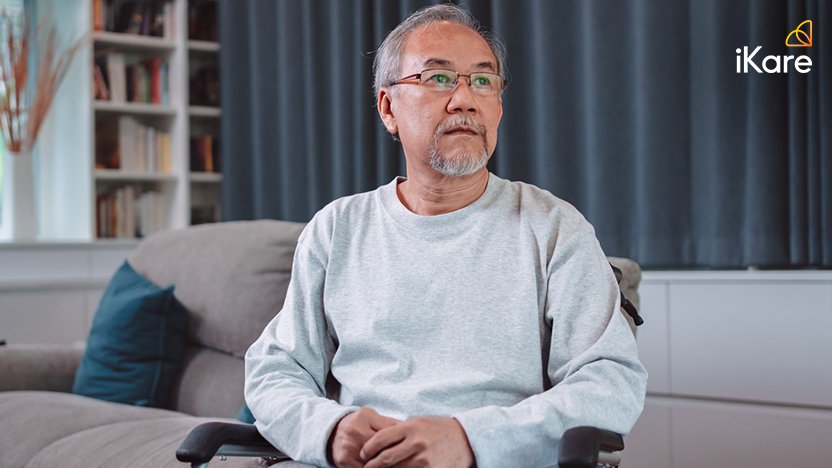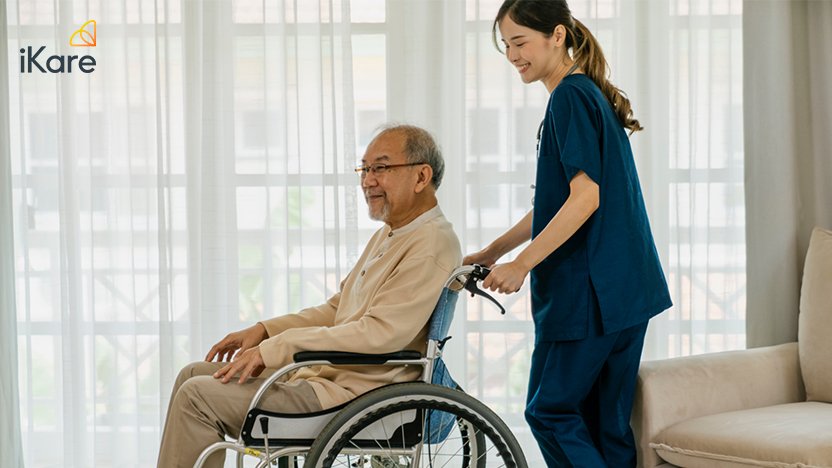
The road to recovery after a stroke is marked not only by physical challenges but also by emotional ones. For stroke survivors, the journey is often accompanied by a silent companion, depression, born from the intricate changes within the brain. In these challenging times, home nursing services offer a symbol of hope, providing personalised stroke care and assistance. Join us as we explore the pivotal role of home nursing in managing post-stroke depression, and how it can serve as a pillar of strength not only for patients but also for their family caregivers. Read on to learn more.
Early detection

Detecting signs of depression early after a stroke holds immense importance for providing effective care. Home nursing professionals are trained to recognise subtle shifts in mood and behaviour, allowing for timely intervention. Beyond that, these compassionate caregivers foster connections built on trust, establishing safe spaces where individuals can freely share their deepest fears and vulnerabilities. This early detection paves the way for tailored strategies and ensures timely support is offered, preventing the escalation of depression symptoms.
Promoting healthy habits

Home nursing support extends beyond physical care, providing a holistic approach that nurtures overall well-being. Through close collaboration with patients, home nursing professionals tailor routines that include simple yet impactful activities — like taking short walks, engaging in light exercises, or pursuing hobbies — that play a significant role in uplifting spirits and combating feelings of despair. These everyday actions are not just routines, but powerful tools in enhancing emotional well-being, and creating a sense of fulfilment and positivity in daily life. Furthermore, the focus on balanced nutrition for stroke survivors also serves as a crucial pillar for their recuperation and sustained health, nurturing a healing environment within the comforting familiarity of one’s home.
Support for caregivers
The toll of post-stroke depression ripples far beyond the individual affected; it affects the entire support network, especially family caregivers who are unsung heroes. Home nursing professionals understand the silent struggles caregivers endure and step in to provide invaluable support. They offer education and resources to equip caregivers with the tools to navigate the complexities of supporting a loved one through recovery and managing associated emotional challenges.
Moreover, they recognise the sheer weight and relentless demands placed upon caregivers, providing crucial moments of respite. These pauses are vital to prevent caregiver burnout, as well as opportunities for caregivers to rejuvenate, recalibrate, and dedicate essential time to attend to their own well-being.
Learn more: Benefits of Open Communication Between Families and Care Providers | iKare
Continuity of care and follow-up

Home nursing services act as a steady support system, providing ongoing support, and ensuring consistent monitoring and follow-up care. They are the constant companions, regularly checking in on a patient’s well-being and being a reliable presence for any questions or concerns, offering a source of stability and reassurance at every step of the way.
Managing post-stroke depression requires a multifaceted approach, and home nursing support stands as a guiding light in this journey. With a blend of dedication, expertise, and compassion, these professionals play a pivotal role in enhancing the quality of life and fostering emotional well-being for stroke survivors and their caregivers alike.
Looking for dedicated support to aid your loved one’s journey to recovery? iKare offers a comprehensive range of caregiver and home nursing services in Singapore, aimed at being a trusted companion on the path towards holistic health care. Reach out to our team today to experience personalised support that prioritises your loved one’s well being.

